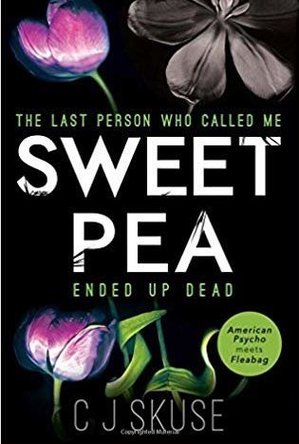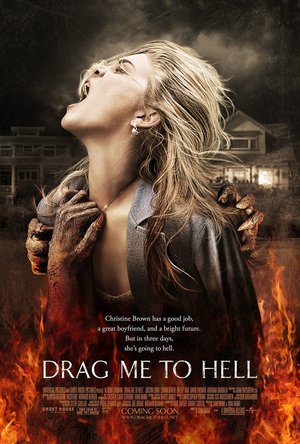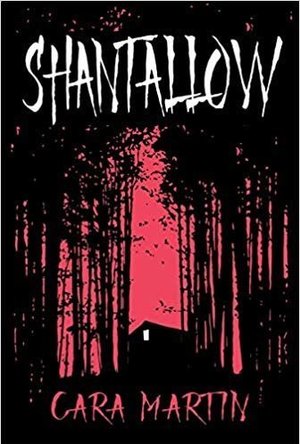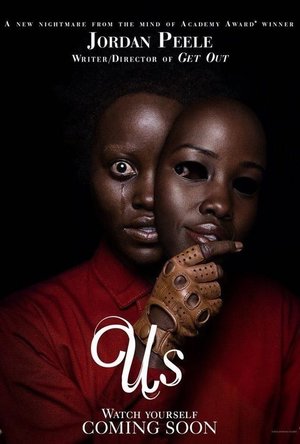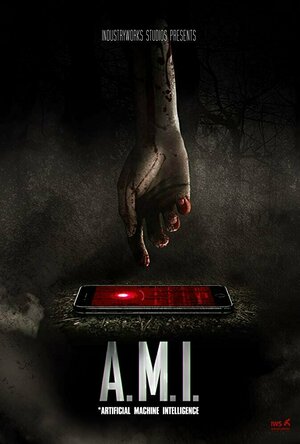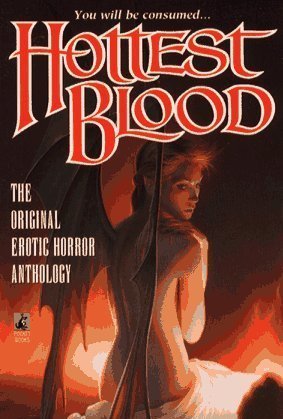BookInspector (124 KP) rated Sweetpea in Books
Sep 24, 2020
The main character chosen for this book is incredibly funny and seriously disturbed. I really liked the way she expressed herself in this diary. We all sometimes want to kill some nasty people around us, of course just in our heads, but the character actually does it. Rhinannon is psychotic genius, I would say, she knows how to manipulate people to her advantage, knows how to lure them into her traps, like a clever spider. It’s just hard to explain her personality, it is so twisted and complex. In some places I was really grossed out by the fetishes of the main character, they are just nasty. All these details made this book so amazing.
The plot of this book happens in one of England’s small towns, and time frame of this diary is between New Year and first of June, so, six month. Most of the chapters used to start with character’s “kill list”, the people who annoyed her in one way or the other, and she would be more than happy to end their lives. The plot of this book is full of twists and turns, and more you get into the book, the more secrets and nastiness it unfolds. It was quite scary to read, how detailed the author described the feeling, when the murder used to take place. How does she know all this stuff? I found it interesting, how author showed, that stereotypes of serial killers can be broken, and that you never know who is seriously messed up in their heads.
The book itself contains heaps of strong language, which makes it really funny, and most probably, I looked really silly, while reading and smiling on the tube. The chapters of the book are really short, and the book is fast paced, so it makes it a real page turner, as you really want to find out what is coming up next. The writing style of this book is really great, and I had real pleasure while reading it, it’s easy to understand and uses great daily terms which are very realistic, and we all used them sometimes. The ending of the book left me questioning and curious, but at the same time it was obvious and concluding. But still, I really want to know what happened next. So, to conclude, I really loved this book and I strongly recommend getting it, it is a marvellous thriller which is extremely funny, but disturbing at the same time, full of layers and insight into the mind of the psychopath. It’s one of my favourites so far and a total must read.
Matthew Krueger (10051 KP) rated Drag Me to Hell (2009) in Movies
Oct 28, 2020
The plot: Christine Brown (Alison Lohman) has a loving boyfriend (Justin Long) and a great job at a Los Angeles bank. But her heavenly life becomes hellish when, in an effort to impress her boss, she denies an old woman's request for an extension on her home loan. In retaliation, the crone places a curse on Christine, threatening her soul with eternal damnation. Christine seeks a psychic's help to break the curse, but the price to save her soul may be more than she can pay.
Raimi wrote Drag Me to Hell with his brother, Ivan, before working on the Spider-Man trilogy.
The original story for Drag Me to Hell was written ten years before the film went into production and was written by Sam Raimi and his brother Ivan Raimi. The film went into production under the name The Curse. The Raimis wrote the script as a morality tale, desiring to write a story about a character who wants to be a good person, but makes a sinful choice out of greed for her own betterment and pays the price for it. The Raimis tried to make the character of Christine the main focal point in the film, and tried to have Christine in almost all the scenes in the film.
The most significant parallel is that both stories involve the passing of a cursed object, which has to be passed to someone else, or its possessor will be devoured by one or more demons. Unlike his past horror films, Raimi wanted the film to be rated PG-13 and not strictly driven by gore, stating, "I didn't want to do exactly the same thing I had done before."
After finishing the script, Raimi desired to make the picture after the first draft of the script was completed, but other projects such as the Spider-Man film series became a nearly decade-long endeavor, pushing opportunities to continue work on Drag Me to Hell to late 2007. Raimi offered director Edgar Wright to direct Drag Me to Hell which Wright turned down as he was filming Hot Fuzz and felt that "If I did it, it would just feel like karaoke." After the previous three Spider-Man films, Raimi came back to the script of Drag Me to Hell, wanting to make a simpler and lower-budget film.
Raimi said he set out to create “a horror film with lots of wild moments and lots of suspense and big shocks that’ll hopefully make audiences jump. But I also wanted to have a lot of dark humor sprinkled throughout. I spent the last decade doing Spider-Man and you come to rely on a lot of people doing things for you and a lot of help, but it’s refreshing and wonderful to be reminded that, as with most filmmakers, the best way to do it is yourself, with a tight team doing the main jobs."
Its a excellent movie.
Heather Cranmer (2721 KP) rated Shantallow in Books
Aug 31, 2019
I felt like the plot of Shantallow was a little confused to begin with. It started out as a teen love story between to high school kids gone wrong thanks to jealousy. However, after about thirty percent through the book, it quickly became a supernatural horror story about an evil haunted house. I thought this would focus on the nightmare that the main character, Misha, has about Tanvi. The nightmare, to me, only seems brushed upon. This didn't take away my enjoyment from the story though. I will admit that the whole love story in the beginning was a bit slow, and I did find myself wondering if I should continue. I'm really glad I persevered because after the love story, this book really takes off. It was as if Shantallow sank it's teeth into my attention span and didn't let go. I couldn't wait to see what would happen next in the evil house known as Shantallow. The creepy factor was definitely there throughout!
The ending of Shantallow felt a little as if the author didn't know how to end the book. It seemed rushed and too quick to end without being explained. Although Shantallow didn't end in any cliffhangers, I was still left with unanswered questions. Perhaps Shantallow will end up being a series, and my questions about the house will be answered.
The diversity of characters in Shantallow was done fantastically. I also enjoyed each of the characters once this book got going. Tanvi was an interesting character throughout the book. Although I could picture all the characters in my mind, Tanvi was the easiest one to bring alive in my head. She felt so realistic and like she could be someone I know. Misha comes across as really selfish, jealous, and controlling to being with. However, he redeems himself during his time in the Shantallow house with how protective he is over everyone. Lauren was my favorite character. I loved scenes that she was in. She seemed like such a sweet innocent kid.
Trigger warnings for Shantallow include violence, jealousy, murder, death, attempted murder, profanity, sex between teens (although not graphic), evil spirits, and underage drinking.
Despite the hurried ending, Shantallow really is a good read. It's got a very spooky plot and great characters once you get past the love story. I would recommend Shantallow by Cara Martin to older teens and adults aged 17+. If you love scary stories that will keep you up late at night reading with the lights on, Shantallow is the book for you! It definitely made my nights scarier (but I enjoy being scared)!
--
(A special thank you to Xpresso Book Tours for providing me with an eBook of Shantallow by Cara Martin in exchange for an honest and unbiased review.)
Andy K (10823 KP) rated Us (2019) in Movies
Sep 21, 2019
Each counterpart goes after their "normal" version in various ways including on the used power boat they had just purchased or having a conversation while sitting in their living room. Not known is why or who they are and what are their intentions. They family tried to take refuge at their neighbors home only to discover they met with their demise courtesy of their own set of demons hunting them.
The family eventually reunites and tried to escape, but are pursued. Several confrontations ensue at the beach where some carnage is executed by the demons and the family against each other.
Then the twist, kind of. A scene at the start of the film when the mother had a traumatic experience as a child getting separated from her family and finding her way into a hall of mirrors and seeing her other self as a child is explained. Truths you thought were truths end of being a lie or a different situation than you originally thought.
In trying to figure out a type for this film it is rather difficult. It is not particularly scary or gory. I suppose suspense/thriller would suit it best, but I'm not sure that is what writer/director Jordan Peele was going for. I liked the visuals, the acting, the musical score and some of the ideas, but not really the execution or the screenplay.
It had some jokes like the "Home Alone" reference and other scenes where the parents and children are together making fun of each other which were just not funny and took away from the tension.
My main problem with the script was the fact that the characters' actions were mostly not appropriate. No one seemed to be bothered by the fact that these other human/non humans existed and when family members, even children, begin performing heinous actions, they don't even seem to blink an eye. They also have to write in the scene where they try and call the police and they are unavailable.
I feel like there was a really great film in there somewhere, they just didn't get it quite right. The middle section dragged somewhat and the ending was interesting but didn't hold water the more you thought about it. I have no issue with a vague ending as long as it leaves you thinking and drawing your own conclusions; however, this film was vague not in a good way I think just due to a mediocre screenplay or maybe bad editing.
Peele certainly had his own big shoes t fill after getting a Best Picture nomination for his first film, Get Out. The box office and critical acclaim were paramount on that one.
Hopefully, he will rebound from this film and create something truly unique and interesting for his next effort. We certainly need more great horror writer/directors out there!
Darren (1599 KP) rated A.M.I. (2019) in Movies
Oct 14, 2019
Performances – Debs Howard in the leading role is very interesting to watch, she has the image of a popular student, only holds the psychotic side back. Sam Robert Muik does give us one of the most unlikable characters of the year. Nobody else really gets any screen time to do much.
Story – The story here follows a teenager girl that is struggling with her mother’s death only to turn to her phone artificial intelligence for a friend, which only turns her into a psychotic killer, taking out revenge on the people that are wronging her in life. This story could easily be one that could have addressed the real life problems Cassie would be experiencing with loss, but instead it just decides to show us that she has no friends or family that want to help her in anyway, despite the fact they should be stood next to her helping her. The speed of which she turns to the phone for friendship is worrying quick and how quickly she starts to kill, though it does have a glancing reference to her head injury, which could have been made more of a point about.
Horror – The horror side of the film does follow Cassie on her slasher style killing spree, it isn’t scary and the kills happen way to quickly to have any tension.
Settings – The film does use the everyday settings which shows how somebody could go lose it and go on a spree.
Special Effects – The effects are used to show injuries, while mostly are off camera too, they don’t need to show us anything if we are honesty.
Scene of the Movie – The slip and slide.
That Moment That Annoyed Me – In one scene Sarah is asked if she wants to call her mother, less than 10 minutes later, she talks about living alone in an apartment.
Final Thoughts – This is an odd little slasher that does everything to make you support the killer over anybody in their life and does almost hit comical with the kills.
Overall: Fun little slasher.

The Halloween Oracle
Lifestyle and Reference
App
Harness the eerie power of Halloween every night of year with this stunning, accurate Oracle deck. ...

The Wonder Weeks
Health & Fitness and Reference
App
The Wonder Weeks worldwide bestselling baby app is a personalized weekly calendar of your baby’s...

Europa-Park
Travel and Entertainment
App
Welcome to the Europa-Park App 5.5! Unbelievable – over 900 top reviews for our last version! We...

Oldify - Old Face App
Entertainment and Photo & Video
App
See your face when it’s old with Oldify, a fun camera booth app that lets turns your iPhone or...
Mandy and G.D. Burkhead (26 KP) rated Hottest Blood: The Ultimate in Erotic Horror in Books
May 20, 2018
I like short story compilations because you get a variety of content that’s just as easy to breeze through if you have the time as it is to get to a stopping point and put down if you don’t. I like horror fiction because it usually involves the super-natural, which interests me, and intense emotional responses, which are almost always a good thing in writing. And I like eroticism because I am a warm-blooded human being with a pulse. However, on the whole, I do not like Hottest Blood.
I wanted to, I did. Look at that cover. It’s equal amounts scary and sexy, both in completely safe, PG-13-at-most kind of ways. Unfortunately, Softcore Succubus here is both the scariest and the sexiest thing about this book
Bluntly analogized, you know that feeling you get when you come across something on the internet that disturbs and/or disgusts you, and then you learn that there’s a dedicated group of people that gets off on it? Most of the stories in this book are that feeling captured in words.
Case in point, the story “Damaged Goods” by Elizabeth Massie, which as far as I can tell is about a couple of physically abused, emotionally damaged, developmentally stunted kids somewhere around their early teens who live with a religious fringe cult being led out to a field to have sex with each other while a nameless U.S. President watches and masturbates before both kids are drowned in a river by their preacher/pimp caretaker.
Or there’s “Mr. Right” by Chris Lacher, which tells the story of a college student named Russ who has a secret fetish for the deformed women in the freak show at a nearby carnival – a fascination which leads to him getting held down and forcibly raped by a group of unwashed subhuman mutants, which the detailed descriptions make sure you understand are completely revolting to all five senses. The story ends with him being dumped out behind the fairgrounds while a small, legless girl happily informs him that this is how all carnival workers reproduce, and he can look forward to seeing his own mutant rape-spawn in the show next year.
Or there’s “Abuse” by Matthew Costello, which simply shows us how the arrest of a Peewee Herman surrogate goes down in an adult movie theater before ending with another man jerking off with the cold, dry, severed hand in his pocket as he contemplates getting a new one to replace it.
The tone of these three are pretty much par for the course for the rest of the book: thoroughly disturbing, and sex is involved, but the disturbing feeling stems from revulsion rather than fear, and the sex bits are so far on the other end of the spectrum from erotic that it feels like the authors are trying to punish their readers for even expecting to be aroused in any way.
Of course, I said myself earlier that intense emotional responses are “almost always a good thing in writing.” By that merit alone, this book technically succeeds; in fact, if it had billed itself as shock fiction instead of erotic horror, I’d begrudgingly give it a medal in its class. The “aw, what the hell?!” moments are not as artistically executed as, say, a Chuck Palahniuk read, and they tend not to have as much depth to them, but strictly in terms of making you wish that you could unread words, they get the job done.
But that isn’t the job that Hottest Blood was hired to do, and that’s not what it put on its resume. It said it was going to “heat the blood and chill the mind,” and promised that “terror never felt this sexy!” It would have been more appropriate to say that “sex never felt this terrible.”
All of that said, if you abandon any hope of seeing anything resembling erotica or horror (scary horror, anyway), there are a few stories in here that are decent reads – mostly because they try to say something with their subject matter rather than use it to see how thoroughly they can ruin the idea of sex for the reader. To give a few quick nods of approval:
Nancy Holder’s “I Hear the Mermaids Singing,” which opens the anthology, is a dark and modern re-imagining of “The Little Mermaid” that brutally points up the drawbacks to throwing away your whole life and family in order to pursue someone that you know nothing about outside of a few fleeting glimpses and lustful inner fantasies.
J.L. Comeau’s “Black Cars” is the narrative of a high-class chauffeur as he tells his passenger an increasingly mysterious story about a couple of his regular customers, culminating in a creepy twist payoff that, in retrospect, actually makes it count as a legitimate horror story, and a decently gripping one at that.
And “Safe at Home” by Steve and Melanie Tem, while decidedly and disturbingly unsexy, at least has good reason to be; it’s a short character study of a young woman who’d been molested as a child, and the lasting and complex psychological damage resulting thereof that prevents her from having any normal social life or relationships, even with someone whom she legitimately likes, someone who knows what’s happened and sincerely cares for her.
So for the handful of intriguing stories that don’t make you quit (or wish you had) mid-read out of revolted disappointment, I can’t completely condemn Hottest Blood. If you want to test your own threshold for repulsion but are understandably hesitant to use online image searches to this end, I heartily recommend it.
If you are legitimately turned on by the idea of a man eating a woman alive and then gestating her alien spawn inside his own bloated body until his head detaches and crawls away (“How Deep the Taste of Love,” John Shirley), I suppose I still heartily recommend it, though I do so from a safe distance.
If you want to read one of the few stories involved that aren’t horrible, I heartily recommend trying to find them on their own somewhere else first.
But if you want “the ultimate in erotic horror,” stay the hell away. Softcore Succubus is a trap.
